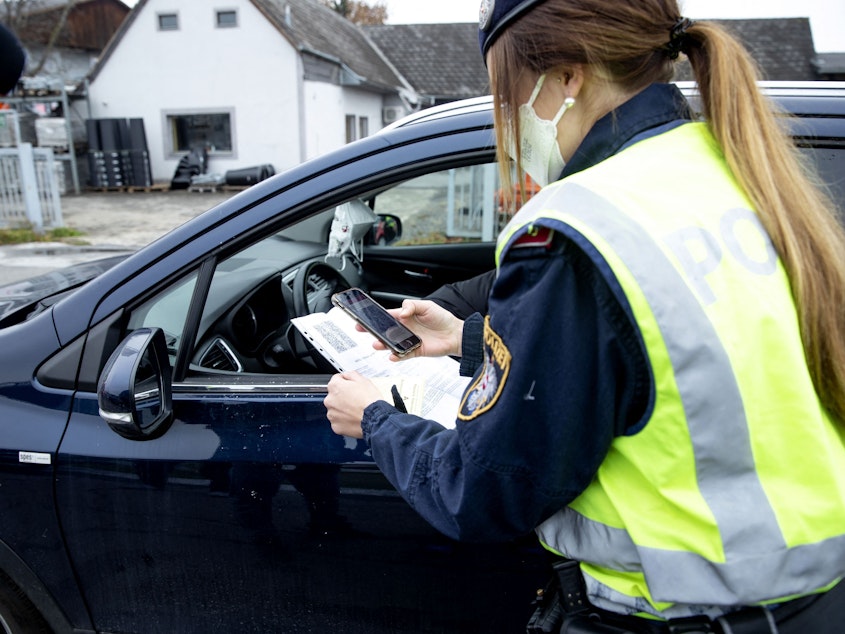Austria and Germany impose restrictions on unvaccinated people as COVID cases surge

Austria has placed some 2 million unvaccinated people on partial lockdown, while neighboring Germany has reintroduced free coronavirus testing, as the two countries contend with soaring rates of COVID-19 amid a Europe-wide wave of new infections.
Unvaccinated people in Austria will only be allowed to leave their homes for work, food shopping or emergencies, according to the new mandate beginning Monday.
Police are conducting spot checks of digital vaccine certificates, though there's skepticism about how effectively the lockdown can be enforced.
"We really didn't take this step lightly and I don't think it should be talked down," Austrian Chancellor Alexander Schallenberg told Ö1 radio, which called the move a dramatic step.
"What we are trying is precisely to reduce contact between the unvaccinated and vaccinated to a minimum, and also contact between the unvaccinated," Schallenberg said.
The measures are expected to remain in place for 10 days. Nearly 12,000 people have died since the start of the pandemic in the country of 9 million.
Germany reintroduces free testing
As Germany battles its worst infection rate since the pandemic began, a similar lockdown has been imposed in the capital, Berlin, with only fully vaccinated or people recently recovered from COVID-19 allowed to enter restaurants, cinemas and sports facilities.
The federal government is also reversing course only a month after saying it would no longer provide free coronavirus testing.
While Germany, at 68%, and Austria, at 65%, outpace the U.S. in the percentage of the population fully vaccinated, they are somewhat behind some of their fellow EU members, as well as the United Kingdom.
"Our vaccination rate is still under 75% of the German population," said Dr. Christine Falk, president of the German Society for Immunology, according to Deutsche Welle. "Combined with the lack of contact restrictions, this is allowing the virus to spread almost exclusively among the unvaccinated."
Germany has recorded about 98,000 COVID-19 deaths since the start of the pandemic.
An angry protest in the Netherlands
Meanwhile, the Netherlands Saturday night imposed a partial lockdown that is set to remain in place for at least three weeks, amid a surge in COVID-19 cases that have put a severe strain on Dutch hospitals.
The measures will limit hours for bars, restaurants and supermarkets. There is also a limit of four guests per household, and spectators are once again banned from sporting events.
The measures, announced by acting Prime Minister Mark Rutte on Friday, angered some Dutch youth, hundreds of whom took to the streets in the northern city of Leeuwarden Saturday night, where they set off fireworks before being pushed out of a central square by police, broadcaster NOS reported, according to The Associated Press.
Despite a vaccination rate of nearly 85% of the adult population in the Netherlands, the country recorded a record number of new infections on Thursday — more than 16,000.
COVID-19 has killed more than 18,600 people in the country since the start of the pandemic. [Copyright 2021 NPR]



